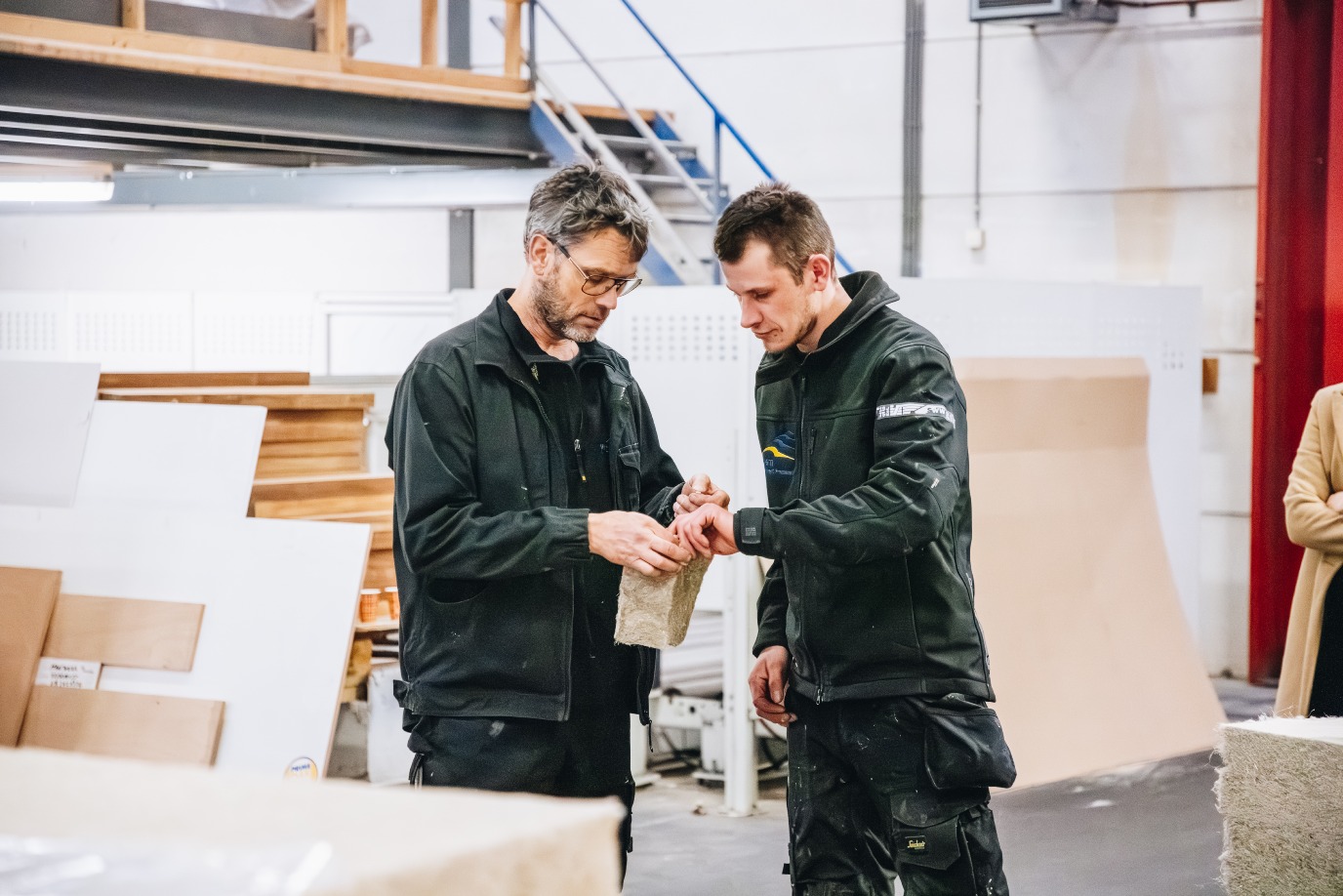Major boost for Frisian education accelerates (re)education in biobased building
Fryslân is leading the way in biobased building. This is a new way of working with new materials and therefore requires new training. Not only in the construction sector, but also in agriculture and the processing industry. Indeed, in order to use biobased materials, other crops need to be grown, processed and applied - and that requires new knowledge and skills. Over the next four years, Firda, NHL Stenden, Van Hall Larenstein, Aeres MBO Leeuwarden and deRUG/Campus Fryslân will together receive 1.9 million from the LLO Catalyst, where LLO stands for lifelong development. This is a central government program for accelerating the training and retraining of existing personnel within the energy and raw materials transition.
The aforementioned Frisian educational institutions (united in the Education Agreement Friesland) are joining hands with 18 companies from across the chain, Circular Friesland, Innovation Pact Fryslân, with support from Building Balance and the province of Fryslân. The common goal: to develop a future-proof educational offering that meets the needs in practice and contributes to a strong biobased chain in the region.
The cooperation is special because the entire educational field is involved. Aeres MBO Leeuwarden and Van Hall Larenstein bring expertise in the field of cultivation and agro. NHL Stenden and Firda focus on applications within construction and industrialization. RUG/Campus Fryslân is looking at the strategic and overarching part: chain integration.
Carlo Segers, member of the Executive Board of Firda: “This project shows how a unique cooperation between vocational schools and regional (construction) companies leads to innovative and sustainable building solutions. Together we are building the future - with and for the region.”

New forms of education and cooperation
The educational offerings are not devised from above, but arise directly from practice: companies - architects, construction companies, material dealers, suppliers, farmers, growers - and educational institutions will work together to develop new educational offerings based on concrete questions that the companies encounter. These new forms of education and cooperation require circular approaches, in which knowledge constantly circulates between these parties and solutions are continuously tested for effectiveness.
Live translation to appropriate education
Funds from the LLO Catalyst make it possible to make a “live” translation of practical questions into appropriate education. The questions collected from across the chain are then used to develop more widely applicable (re)education offerings, such as courses and training, which are made available to the sector. The core of this approach? A strong collaboration between education and the professional field, so that the education on offer really connects with practice.
| Last modified: | 02 April 2025 11.07 a.m. |
More news
-
24 March 2025
UG 28th in World's Most International Universities 2025 rankings
The University of Groningen has been ranked 28th in the World's Most International Universities 2025 by Times Higher Education. With this, the UG leaves behind institutions such as MIT and Harvard. The 28th place marks an increase of five places: in...
-
05 March 2025
Women in Science
The UG celebrates International Women’s Day with a special photo series: Women in Science.
-
16 December 2024
Jouke de Vries: ‘The University will have to be flexible’
2024 was a festive year for the University of Groningen. In this podcast, Jouke de Vries, the chair of the Executive Board, looks back.
